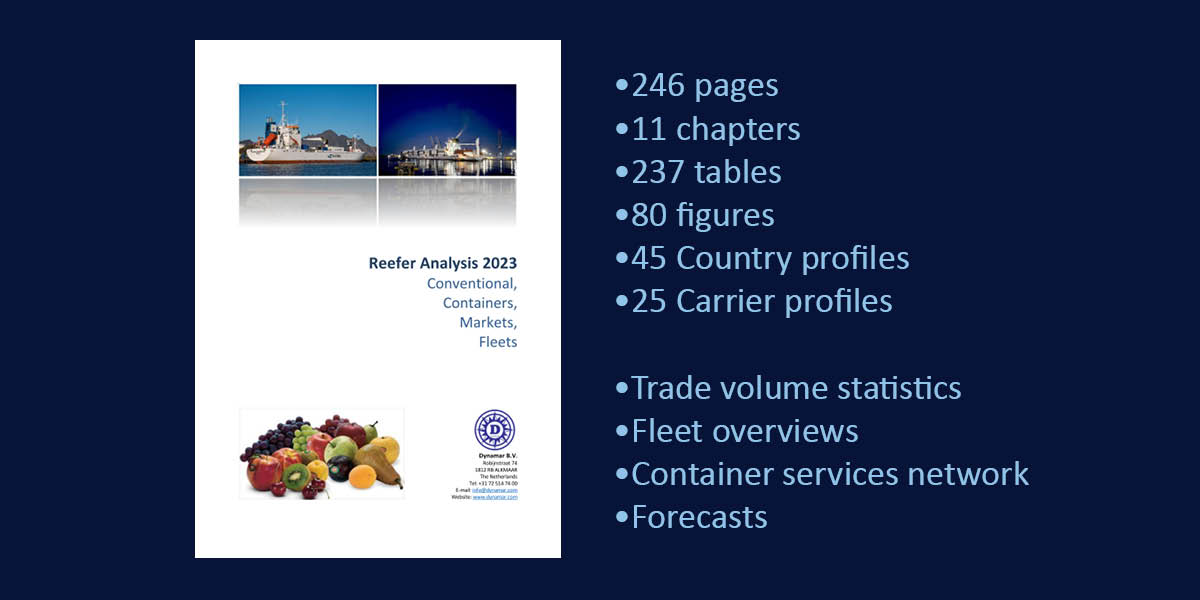
Reefer Analysis 2023 – Conventional, Containers, Markets, Fleets – PDF €1.280,-
The year 2023 will be seen as a transitional year from the heady days of 2022 to, hopefully, business as usual in 2024. In the good times, due to an exceptionally tight and imbalanced container shipping market, the conventional reefer sector was able to attract lots of cargo at very attractive rates. Once the container market relaxed, its freight rates dropped tremendously, and so did the rates of conventional reefer ships.
Reefer volumes declining, new container capacity pouring and scrapping rising are the recipe for exciting times. Especially when for the first time in two decades there is a substantial conventional reefer order book. Whilst the traditional perishable traders, Chiquita (Great White Fleet), Del Monte (Network Shipping) and Dole (Dole Ocean Cargo Express) are withdrawing from the conventional segment, others like Compagnie Fruitière (Africa Express Line) and Cool Carriers still see a market for this specialised ship. Also, in the fish trade conventional reefers are still common.
Meanwhile, container carriers continue doing what they are good at: carrying boxes. With congestion a thing of the past and transport volumes reduced, in combination with less congestion, there is plenty of shipboard capacity available, some of which is cascaded to relevant container trades triggering substantial changes to their services networks.
Dynamar has released the 2023 edition of its long-standing Reefer Analysis series, with an in-depth study of the container and conventional sectors.
This publication builds upon the analysis of the previous years. The study comprises three parts: two separate sections on the different conventional and container reefer trades, based on an extensive write up and one section analysing the structure of the market. The latest edition of the publication also includes forecasts for perishable trade as well as for fleet developments. It is divided in the following sections:
Part I – Reefer market structure(s)
After a historical overview on the background and development of reefer shipping, this chapter provides extensive summaries, statistics and concise descriptions of:
Part 2 – Conventional reefer shipping
This section opens with a review of recent developments in the conventional reefer sector (including those affecting reefer container transports), covering three years (2019-2021), including statistics and graphs of relevant time charter equivalents, as well as:
Part 3 – Container reefer shipping
This section provides an insight into the main containerised reefer routes and services, invariably part of the South-North trade structure. Compared to previous versions of this publication, coverage has been expanded by even more trading areas. Furthermore, this section comprises:
This publication uses the most recent trade statistics (up to 2022) on reefer commodities by country and area, supplemented with up-to-date port, vessel, box and carrier fleet statistics and gives a profound insight into the background, characteristics, developments and present status of the worldwide shipping market of perishables and the relevant players.
Register for an account on Dynamar.com here
Copyrights © 2024 Dynamar B.V. - Privacy Policy & Terms of Engagement - Cookie declaration.